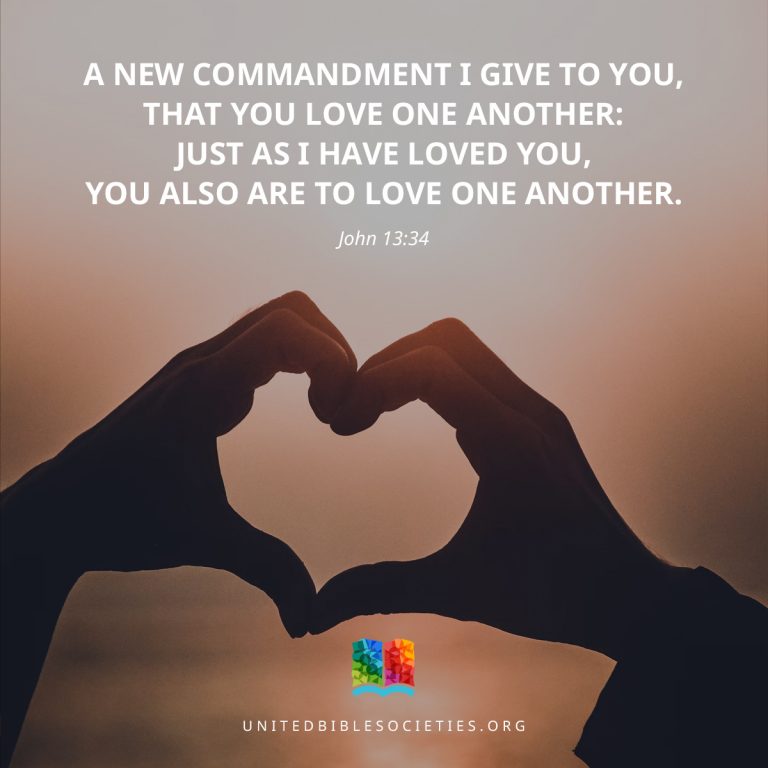1 What good is it to be a Jew? What good is it to be circumcised? 2 It is good in a lot of ways! First of all, God's messages were spoken to the Jews. 3 It is true that some of them did not believe the message. But does this mean that God cannot be trusted, just because they did not have faith? 4 No, indeed! God tells the truth, even if everyone else is a liar. The Scriptures say about God,
“Your words
will be proven true,
and in court
you will win your case.”
5 If our evil deeds show how right God is, then what can we say? Is it wrong for God to become angry and punish us? What a foolish thing to ask. 6 But the answer is, “No.” Otherwise, how could God judge the world? 7 Since your lies bring great honor to God by showing how truthful he is, you may ask why God still says you are a sinner. 8 You might as well say, “Let's do something evil, so that something good will come of it!” Some people even claim that we are saying this. But God is fair and will judge them as well.
No One Is Good
9 What does all this mean? Does it mean that we Jews are better off than the Gentiles? No, it doesn't! Jews, as well as Gentiles, are ruled by sin, just as I have said. 10 The Scriptures tell us,
“No one is acceptable to God!
11 Not one of them understands
or even searches for God.
12 They have all turned away
and are worthless.
There isn't one person
who does right.
13 Their words are like
an open pit,
and their tongues are good
only for telling lies.
Each word is as deadly
as the fangs of a snake,
14 and they say nothing
but bitter curses.
15 These people quickly
become violent.
16 Wherever they go,
they leave ruin
and destruction.
17 They don't know how
to live in peace.
18 They don't even fear God.”
19 We know that everything in the Law was written for those who are under its power. The Law says these things to stop anyone from making excuses and to let God show that the whole world is guilty. 20 God doesn't accept people simply because they obey the Law. No, indeed! All the Law does is to point out our sin.
God's Way of Accepting People
21 Now we see how God does make us acceptable to him. The Law and the Prophets tell how we become acceptable, and it isn't by obeying the Law of Moses. 22 God treats everyone alike. He accepts people only because they have faith in Jesus Christ. 23 All of us have sinned and fallen short of God's glory. 24 But God treats us much better than we deserve, and because of Christ Jesus, he freely accepts us and sets us free from our sins. 25-26 God sent Christ to be our sacrifice. Christ offered his life's blood, so by faith in him we could come to God. And God did this to show that in the past he was right to be patient and forgive sinners. This also shows that God is right when he accepts people who have faith in Jesus.
27 What is left for us to brag about? Not a thing! Is it because we obeyed some law? No! It is because of faith. 28 We see that people are acceptable to God because they have faith, and not because they obey the Law. 29 Does God belong only to the Jews? Isn't he also the God of the Gentiles? Yes, he is! 30 There is only one God, and he accepts Gentiles as well as Jews, simply because of their faith. 31 Do we destroy the Law by our faith? Not at all! We make it even more powerful.
1 E-ta nǝmǝ Yahuuḏ ṯamthɔ-la aatha-gi? Alla faayitha kwǝthi ṯuuɽunnǝ kwundǝr kwǝndu? 2 Ŋǝni ŋuuru raay tatap. Ŋiŋna nǝ Yahuuḏ oro yilŋithinǝrsi ŋiɽaŋali ŋǝthi Allah kerreny. 3 Aatha kwinḏi ethoro mǝ lokwo deŋgen-na iṯǝnninǝ? E-ta a ṯiṯǝnnǝnǝ ṯeeŋen irṯasi ŋirllalɔ ŋǝthi Allah-pa? 4 Bǝri-mǝ! Mǝ kinnǝ lizi tatap oro lǝluŋw, Allah tǝ ŋwɔ-tǝ nannatha wirllalɔ, kaka nɔlɔɔthɔnar-gwɔ ŋaarɔŋw,
“Mindaŋ mǝ ŋiɽaŋal ŋɔɔŋa oro rerrem,
nǝ laazim mǝr-ŋǝ ǝccǝ haakima tǝ, a ruu-lu ṯar-ṯṯar.”
5 Laakin mǝ ŋikiya ŋǝri aawa ŋirllalɔ ŋǝthi Allah, e-ta aatha kwɔr andasi? E-ta Allah winḏi ethoro ḏaalim mɔŋw ɔɽasa ŋirŋasa dǝŋgǝr-nǝ? Nyii ŋgwɔ kwǝni kwandisa ethi ŋizigwunǝŋǝ-ŋgi-pǝ. 6 Bǝri-mǝ! E-ta ǝŋgi-mǝ Allah ǝccǝ ṯurmunǝ haakima aŋgwɔrɔ? 7 Mǝ ŋǝluŋw ŋiinyi kikiɽǝzi ṯurwǝnnǝlɔ ṯǝthi ŋiɽaŋal ŋǝthi Allah ŋir rerrem, ŋiɽaŋal-ŋi ŋǝthi ŋinith ŋuuŋun, nǝ ŋaaŋa lotho ligitta-nyii kaṯṯi kaka kwizi kwigii? 8 E-ta ŋǝrrǝrsi ŋigii mindaŋ ethi-mǝ iila ŋisaawa? Nǝrnyji ollo lokwo ŋiɽaŋal-ŋi ŋaarir-ŋiŋw, ŋaaŋa lǝṯaarɔŋw, ethi-nyji ǝrri ŋigii mindaŋ mǝr iila ŋisaaw. Hɔkwɔm weeŋen wǝni wirllalɔ.
Kwiti kweere mac kwɔsɔɔɽɔ.
9 E-ta aatha kwɔrɔ marna? A kwuthǝmthir nyiiŋǝ lir Yahuuḏ aatha-gi? Bǝri-mǝ! Kaka mǝnyii-gwɔ aari haakima kerreny tuk naariny-gwɔŋw Yahuuḏ-ŋǝ Yuunaaniiyyiin-yi lirṯa lɔtɔpɔt lɔɽɔmaṯṯɔ tatap ki-ŋikiya-na. 10 Kaka nɔlɔɔthɔnar-gwɔ ŋaarɔŋw,
“Kwiti kweere mac kwirllalɔ, bǝri wala kwɔtɔpɔt.
11 Kwiti kweere mac kwilŋiṯṯisi-nǝ wala kweere kinnǝ ethi
naŋni Allah-lɔ.
12 Limǝ akkɔ tatap ṯaay pir, limǝ ṯɔɔthatha ki-ldɔŋw;
nɔŋweere kweere mac kwǝrrǝsi ŋisaaw, wala kinnǝni
kwɔtɔpɔt.
13 Rɔgɽɔm reeŋen rir kaka ṯimaamɔ ṯɔvɔɔɽɔ.
Ǝṯirsi kǝgɽinyjǝlɔ riŋla-ri reeŋen.
Ŋiya ŋǝthi yimǝw ŋǝṯi ruuthǝ ki-ruunyunǝ reeŋen.
14 Ǝṯi kworo kweeŋen urǝnni ṯɔllɔtha-ŋwɔ-sina ɽee-gi.
15 Ǝṯi yaaŋa yeeŋen fiɽigathici ŋwunyaŋ ethi kette ḏimmiya.
16 Ki-raay-la reeŋen ǝṯi ṯigiirathalɔ-ŋa ṯirɔnyɔna-thi naani.
17 Nǝ ṯaay ṯǝthi ṯibɽǝthǝlɔ pǝt, nǝreere elŋe ḏuṯ.
18 Wala ethi ŋitheny ŋǝthi Allah naani kiyǝnǝ yeeŋen.”
19 Nǝ kirem tǝ, nǝr elŋe ethaarɔŋw, ŋeere nyithak ŋǝṯisi Sherii@a andasi, ŋǝṯɔŋwsi andaci kila linaanɔ ki Sherii@a-na, mindaŋ mǝ ruunyu tatap naani tugwup, nǝ a ṯurmun tatap mithinni hɔkwɔm-yi wǝthi Allah. 20 Kaka niti ninḏi-gwɔ kwizigwunǝŋ kweere mac, ethi suuɽunni kiyǝnǝ yuuŋwun ŋothɽor-ŋi ŋǝthi Sherii@a, kaka nɔrɔ-gwɔ Sherii@a kwilŋithinǝ-nyji ŋkiya-ŋi.
Allah wǝṯi-nyji suuɽi aŋgwɔrɔ kiyǝnǝ yuuŋwun.
21 Nǝ laakin kirem tǝ, ŋirllalɔ ŋǝthi Allah ŋimǝ ruwǝnnǝlɔ ŋiira Sherii@a-na, nɔnḏɔ-ŋi-va kinnǝni Sherii@a-ŋǝ liɽii-li kii ŋǝni ŋuuŋun, 22 nǝtǝ ŋirllalɔ ŋǝthi Allah iila ṯǝmminǝ-thi, ethi Yǝcu Kwɔrɔstɔ-na, ŋǝthi kila tatap lǝmminici ŋunduŋw. Kaka niti ninaanɔ-gwɔ ṯiɽany mac. 23 Kaka mǝr-gwɔ ǝrri tatap ŋikiyaŋi dɔŋw-li, mindaŋ nǝr ɔblaṯi ŋinithi naana ŋǝthi Allah. 24 Limǝrsi suuɽi ne@ma-gi kwuuŋwun kwir haḏiiyyǝ, ṯallithisa-thi ethi Kwɔrɔstɔ-na kwǝni Yǝcu, 25 ŋgwa kwɔmǝ Allah kette ethoro ṯifivrinnǝ ṯǝri ŋin-ŋi ŋuuŋun ethi aavi ṯǝmminǝ-thi. Nǝsi Allah ǝrri ŋɔ ethi ruwǝzi ŋirllalɔ ŋuuŋun. Kaka nimthicǝ-ŋgwɔ nyuŋwsi ṯɔgwori lǝlu-ttuk, ŋiɽaŋal-ŋi ŋǝthi ŋikiya ŋǝri ŋǝthi kerreny ŋwɔ tuk. 26 Ki-lɔɔmɔr-la ṯǝ kɔlɔ ŋwɔ ruwǝzi ŋirllalɔ ŋuuŋun, mindaŋ ethoro kwirllalɔ, e-ta ŋwɔ suuɽi ŋgwa kwǝmminici Yǝcu-ŋw.
27 E-ta aatha kwɔrɔ kwinḏir ethi ǝllinici ki-rogɽo? Ṯende ṯǝthi faayitha-na kweere. Ṯǝthi ṯɔgwagiza-na? Nǝ ki-ṯɔgwagiza-la ṯǝthi ŋothɽor-na? Bǝri-mǝ! Laakin ki-ṯɔgwagiza-la ṯǝthi ṯǝmminǝ. 28 Kaka nilŋithiny-gwɔ ethaarɔŋw, kwizi kwǝṯi suuɽunni ṯǝmminǝ-thi, nǝreere oro ŋǝthi ŋothɽor ŋǝthi Sherii@a mac. 29 Alla Allah wir Allah wǝthi Yahuuḏ ṯɔɽɔk? Witi wir Allah wǝthi Umam tok mac-a? Epa wǝthi Umam wir-pa tok. 30 Kaka nɔrɔ-gwɔ Allah wɔtɔpɔt, ŋwɔsi suuɽi kila luuɽunnǝ ŋiɽaŋal-ŋi ŋǝthi ṯǝmminǝ ṯeeŋen, nǝ kila liti luuɽunnǝ mac ṯǝmminǝ-thi ṯeeŋen tok. 31 E-ta a kwir urṯunǝlɔ wur Sherii@a-gi ŋiɽaŋal-ŋi ŋǝthi ṯǝmminǝ kɔthɔ-a? Bǝri-mǝ! Laakin ǝri-tǝ kǝniny mithǝthǝ tetter.



